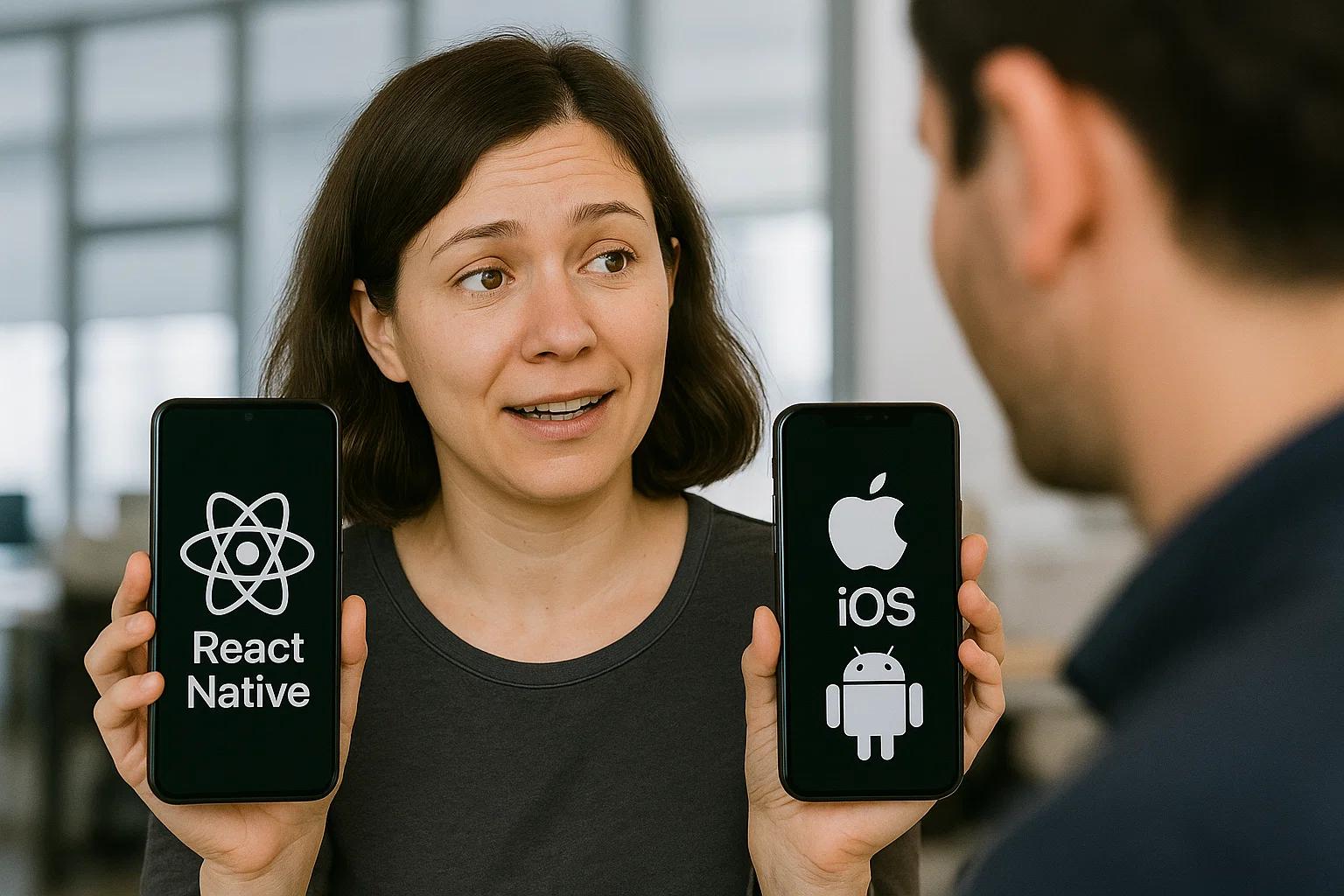React Native vs Native: What’s Best for Your Startup?

Nermin Sehic
Full stack developer with over 12 of experience in web and mobile development and a solid background in IoT, data science and artificial intelligence. Founder and CEO of tershouse, best and biggest coworking space in BiH. Founder of Beta Studio, software company where developers bring crazy ideas to life.

Introduction: The Cross-Platform vs Native Debate in 2025
Choosing the right mobile app development approach is one of the most critical early decisions for any startup. In 2025, the debate between cross-platform (React Native) and native development (iOS/Android) is more relevant than ever. Each path offers unique advantages—and potential pitfalls—depending on your goals, budget, and timeline.At Betastudio, we’ve helped startups and established companies launch successful apps using both strategies. Here’s our up-to-date, practical guide to deciding what’s best for your next product.
| Criteria | React Native (Cross-Platform) | Native (iOS/Android) |
| Pros | - Single codebase for both platforms | - Maximum performance & responsiveness |
| - Faster initial development | - Access to all device features | |
| - Lower initial cost | - Best UI/UX for each OS | |
| - Easier updates & maintenance | - Greater long-term scalability | |
| Cons | - Slightly lower performance for complex apps | - Higher initial cost |
| - Some platform-specific bugs | - Two separate codebases | |
| - Delayed access to new device features | - Longer development time | |
| Cost | $ | $$$ |
| Scalability | Good for most MVPs & mid-size apps | Best for large, complex, or high-traffic apps |
| Speed to Market | Fastest for MVP & early-stage products | Slower, but more robust for long-term scaling |
Betastudio Insight: When We Recommend Each Approach
When we recommend React Native:
- You need to launch fast (MVP, early validation)
- Budget is limited, but you want both iOS and Android apps
- Your app’s features are standard (not highly device-dependent)
- You want to iterate quickly based on user feedback
When we recommend Native:
- Your app requires maximum performance (e.g., gaming, AR, heavy animations)
- You need deep integration with device hardware or OS features
- You’re building a large-scale product with complex requirements
- You want the very best user experience for each platform
Our experience:
We’ve delivered successful products using both approaches for clients ranging from startups to global brands. Our process always starts with understanding your business goals, timeline, and technical needs—then recommending the stack that fits best, not just what’s trendy.
FAQ: React Native vs Native App Development
Is React Native suitable for all types of apps?
React Native is ideal for most MVPs, early-stage products, and apps with standard features. However, for apps requiring advanced graphics, heavy animations, or deep device integrations (like AR, VR, or custom hardware), native development is usually a better choice.
Can I switch from React Native to native later?
Yes, many startups launch with React Native to validate their idea quickly and cost-effectively. If the app scales and requires more advanced features, you can migrate to native code incrementally or for specific modules.
Which approach is more cost-effective for startups?
React Native is typically more affordable for initial development since you maintain one codebase for both iOS and Android. Native development, while more expensive upfront, may provide better long-term scalability and performance for complex products.
Does React Native offer the same performance as native apps?
For most standard apps, React Native’s performance is excellent and often indistinguishable from native. For performance-critical applications (games, real-time video, intensive animations), native still has the edge.
How do updates and maintenance compare?
React Native allows for faster updates and easier maintenance because you’re managing a single codebase. Native apps require separate updates for iOS and Android, which can increase maintenance time and costs.
What about access to new features on iOS or Android?
Native apps get immediate access to the latest platform features as soon as they’re released. React Native sometimes lags behind, but the active community and regular updates help close this gap quickly.
Book a Free Tech Stack Consultation
Choosing between React Native and native development is a strategic decision that can impact your product’s success, cost, and scalability. If you’re unsure which path is right for your next app, Betastudio’s team is here to help.Ready to make an informed decision?
Book a free tech stack consultation with our experts and get tailored advice for your startup’s unique needs.